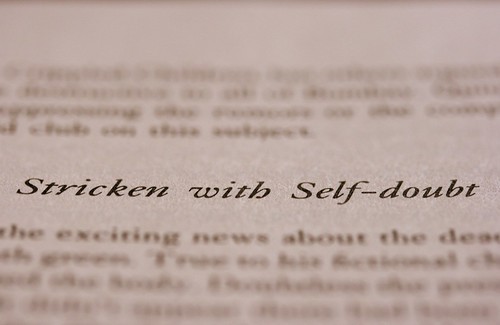which encapsulated the sadness of the "Lonely Pilgrim's" voice:
God have mercy on the manI know this song, and have the album, but I haven't listened to it in awhile, and today it struck me as an achingly accurate description of OCD, particularly what some call Relationship OCD. The character in the song wants to make a real connection with the woman he loves, and yet cannot be certain of what is in her mind, or even in his own. He doesn't trust himself.
Who doubts what he is sure of.
It is part of the human condition that we can't read minds, we can't really know what someone else is thinking, and this can be very lonely, but OCD grabs hold of it and intensifies the suffering with demands of knowing for sure what the other is thinking or feeling, or wanting to be sure of loving someone.
We are feeling creatures, but OCD has no mercy and erodes essential feelings of love and trust by putting the burden on the mind to figure it all out, get reassurance, guarantees, documentation and checking to make sure the feelings are still there. A quick way to lose connection with someone you love is to get lost in an OCD loop of verification within your own mind. I did this for many years in my marriage, wanting to know what physical connection "meant" and how it was supposed to feel, and compulsively going over any touch in my mind, trying to establish if it felt good, was I sure, how did I know, was I doing it right?
And when the circumstances and history of your life seem to confirm the OCD fears, that makes it even harder.
Well I've tried so hard babyI grew from girl into woman into the belief that no one would ever love me because I was essentially defective, and the OCD latched onto this with a vengeance, and ever increased the rumination and fear. A whole string of compulsive questions about what was wrong with me, and why couldn't I change it, and analyzing my every thought and sensation.
But I just can't see
What a woman like you
Is doing with me
My husband and I actually were in a kind of "brilliant disguise," not really telling each other what we were thinking or feeling, but my OCD couldn't protect me from that, and in fact made us even farther apart. He could be in the room, right next to me, and I was far far away in my compulsing. We both found the courage to actually know each other, with the help of a therapist, and this helped immensely when I began Exposure Therapy for my OCD, since I could talk to him about how I was struggling, and at the same know that if he needed a break, he would tell me.
Are there any songs that are meaningful to you in dealing with your OCD?








